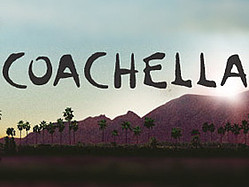It was a tense few hours on Thursday for fans of the annual Coachella Valley Music and Arts Festival when it looked like producers might pull up stakes and leave their longtime Indio, California, home and possibly cancel the 2014 event.
But after promoter Goldenvoice balked at a proposed tax they said would cost them $6 million a year and bump up the price of a three-day pass by an additional $18, the City Council member who proposed it blinked.
"If the tax initiative of putting $4 million to $6 million onto Coachella gets on the ballot, we're going to take off 2014; 2015 we'll be at a new facility outside of Indio," Goldenvoice President Paul Tollett told the Desert Sun newspaper about the threatened tax hike.
The Indio City Council had already rejected the 5 to 10 percent ticket tax for events with more than 2,500 attendees proposed by councilman Sam Torres, prompting Torres to start a signature drive to add the measure to the November ballot.
Following the outcry, though, Torres backed away from his proposal according to a statement posted on the city's official website. Torres announced on Thursday afternoon that he would "suspend" his ballot initiative drive due to the potential negative impact of the festival's threatened move.
"I cannot in good conscience allow this to happen no matter how dire the city's circumstance," Torres said in the release. "My sincere hope is that we can now move past this episode and I personally look forward to working to enhance relationships."
Indio's Mayor, Glenn Miller, applauded the decision to put the city's "long term prosperity" first. "We are committed to working with Goldenvoice to identify mutually beneficial solutions to ensure that the music festival economic engine stays in Indio and continues to boost the regional economy," Miller added.
Torres told NBC Los Angeles that he didn't take the threat by Tollett "lightly" and that no matter how strongly he felt about the tax he would not do anything to jeopardize the livelihoods of the local community.
Since its launch in 1999, Coachella has pumped millions into the local economy thanks to a surcharge on every ticket sold, as well as local revenue generated by hotel room taxes, permitting and camping fees, the employment of 5,000 temporary local workers and food and beverage purchases by the 150,000 attendees.





